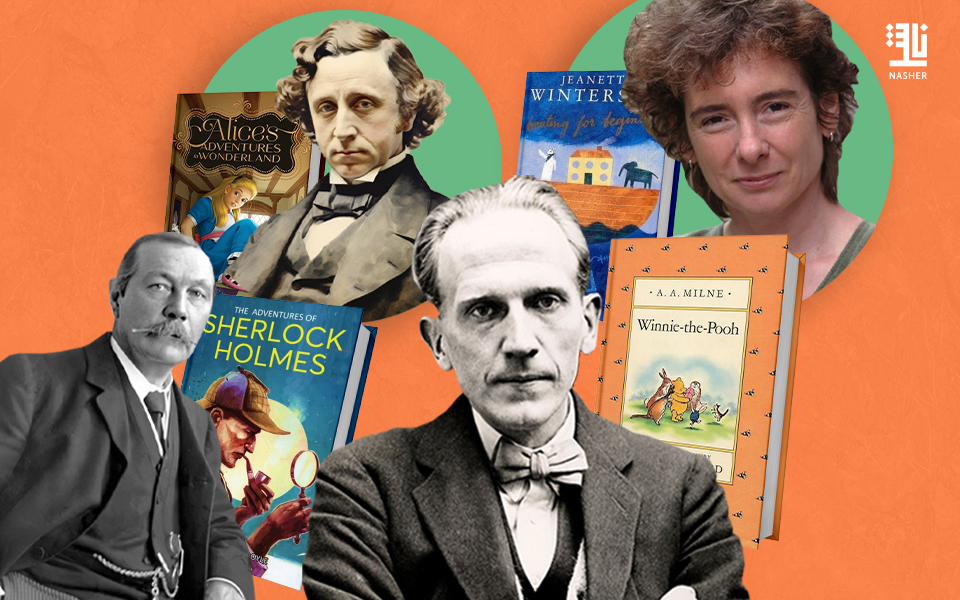Sometimes, authors deeply regret the books that they have published, even if — and sometimes because — those books made their names or brought them wild success. Arthur Conan Doyle famously hated Sherlock Holmes so much that he tried to kill the character off permanently, only to be forced to bring him back after a public outcry. Agatha Christie resented the public demand for more Poirot novels; she found her creation irritating and hated all the idiosyncrasies she had given him, something she wryly references when writing crime author Ariadne Oliver’s hatred of her own fictional detective character.
Many of the books that authors regretted writing are well known, but others come as a surprise. However, it’s important to note that nearly all of the authors who went on to regret their books are white, and most are men.
Alice’s Adventures in Wonderland by Lewis Carroll
Alice’s Adventures in Wonderland is one of the most influential children’s books of all time; it has been referenced, retold, and parodied in hundreds of later novels, has been adapted for film, and has influenced written and visual media the world over. However, in 2014, a letter by Charles Dodgson — Carroll’s real name — was discovered, talking about how much he hated the publicity that came with such a wildly successful book. Dodgson admitted, “I hate all that so intensely that sometimes I almost wish I had never written any books at all,” and would send terse and angry responses to anyone who wrote to him using his pen name.
Boating For Beginners by Jeanette Winterson
Best-known for Oranges are Not the Only Fruit, Jeanette Winterson is a prolific author, but her book Boating For Beginners is less well-known, in part because of Winterson’s personal ambivalence towards the novel. While she doesn’t hate it, Winterson is frank about her reasons for publishing Boating For Beginners: she needed the cash and was able to write the book quickly. Coming out three months after Oranges are Not the Only Fruit, Boating For Beginners was a very different story, intended to be a light comedy. Winterson regretted the impact on her early literary career, saying, “I knocked up B for B and of course just after it appeared Oranges won the Whitbread and then I just didn’t make sense to people.” Luckily, the success of her later books — as recently as 2019, her book Frankissstein was shortlisted for the Booker Prize — means that the oddness of Boating For Beginners has been forgotten.
Winnie the Pooh by A. A. Milne
It’s common knowledge that the real-life Christopher Robin, son of author A. A. Milne, grew up to resent his portrayal in the hugely popular Winnie the Pooh series after being bullied at school and being referred to in connection to his childhood toys for the remainder of his life. Christopher Robin’s dislike of the books put a strain on Milne’s relationship with his son, but Milne also came to regret the books, as readers would not take any of his other work, such as his plays and nonfiction writing, seriously, thanks to the whimsy and childlike atmosphere of the Pooh stories.
Kafka hated his own writing so much that it seems he wanted some of his books outright burned.
When a fan gave him a specially-bound copy of some of his books, the Metamorphosis author said “My scribbling… is nothing more than my own materialisation of horror. It shouldn’t be printed at all. It should be burnt.”
He ordered his friend Max Brod to burn many copies after his death, too, though he did refer to some of his writing as “valid.” It seems his novels, The Trial and The Castle, were among the books he wanted burned — though Brod published them anyway.
Ian Fleming didn’t like the one James Bond book written from a woman’s perspective instead of the spy’s (The Spy Who Loved Me).
The book was savaged by critics, with The Observer calling it “regrettable, if not unreadable.” Fleming himself wrote that “the experiment has obviously gone very much awry.” In fact, he was so unhappy with the novel’s reception that he told the studio making the movie that they could only take the name, and had to change the entire story.
He also asked his publisher to take the book out of print.
Louisa May Alcott wrote that she “Never liked girls or knew many except my sisters” in her diary when asked to write Little Women.
She didn’t want to write the series, which she called “moral pap for the young.” Writing to a friend about marrying Jo off, she said, “I didn’t dare to refuse and out of perversity went and made a funny match for her.” She seemed to regret this decision.
Jaws by Peter Benchley
Jaws was a runaway bestseller, and the movie version, released a year after the book’s publication, was the first summer blockbuster, so iconic that even people who haven’t seen the film can recognise lines and references from the movie . Jaws cemented sharks in the public consciousness as dangerous killers, eager to attack humans, when in reality, shark attacks are vanishingly rare, and sharks can, in fact, be friendly and affectionate creatures. Benchley was so upset by the fact that Jaws gave legitimacy to shark hunting that he devoted the rest of his life to attempts to protect the animals.







